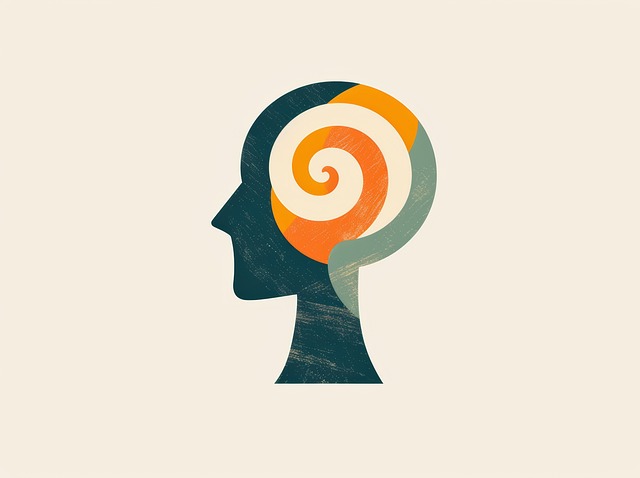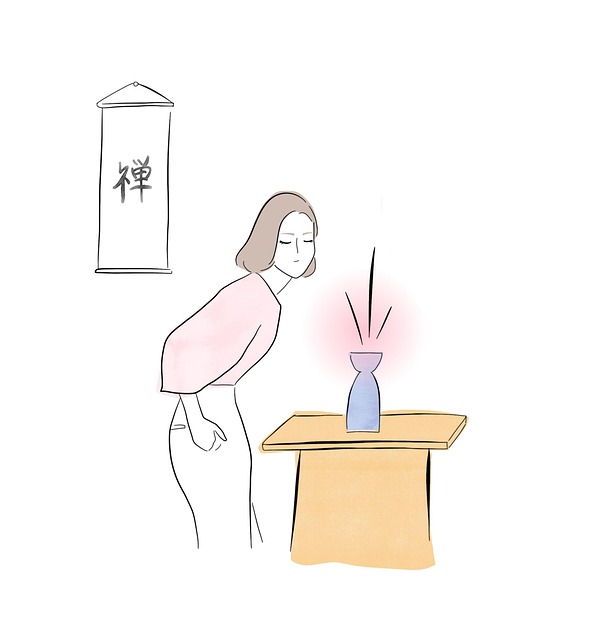Mental wellness is crucial for young minds, impacting thinking, feeling, and behavior. Early intervention through therapies like Somatic Experiencing (SE), which focuses on physical responses to trauma, shows success in treating children's mental health issues. Mindfulness meditation, culturally sensitive care, and self-care routines enhance emotional well-being. SE, tailored for age, teaches children to recognize and regulate emotions. Mental health policy advocacy pushes for research and funding, improving accessibility to innovative therapies like SE. Holistic self-care includes physical, emotional, mental practices for balanced well-being. Techniques like deep breathing, storytelling, and reflection foster resilience and emotional intelligence, displacing negative thought patterns. Professional risk assessments ensure safe, effective self-care strategies.
Mental wellness is integral to a child’s overall development, yet it’s often overlooked. This article delves into the significance of mental wellness and its impact on young minds, exploring innovative approaches like Somatic Experiencing – a therapy proven effective for children. We’ll guide you through creating a holistic self-care routine, incorporating therapeutic techniques, and fostering resilience and emotional intelligence. By implementing these strategies, parents and caregivers can empower children to navigate life’s challenges with strength and grace.
- Understanding Mental Wellness and Its Impact on Young Minds
- The Role of Somatic Experiencing in Self-Care for Children
- Creating a Holistic Self-Care Routine: Essential Components
- Incorporating Therapy Techniques into Daily Life
- Nurturing Resilience and Emotional Intelligence Through Practice
Understanding Mental Wellness and Its Impact on Young Minds

Mental wellness is a crucial aspect of overall well-being, especially for young minds that are still developing. It encompasses emotional, psychological, and social health, influencing how children think, feel, and behave. Understanding mental wellness involves recognizing its impact on daily functioning and academic performance. Young minds, if not nurtured properly, can be susceptible to various challenges like anxiety, depression, and trauma, which may manifest as behavioral issues or learning difficulties.
Early intervention is key in fostering mental wellness. Therapy for young children, such as Somatic Experiencing, has proven effective in addressing these concerns. This therapeutic approach focuses on the body’s physical responses to traumatic experiences, helping children process and release stored emotions. By integrating practices like mindfulness meditation and considering cultural sensitivity in mental healthcare practice, self-care routine development for better mental health becomes more tailored and accessible.
The Role of Somatic Experiencing in Self-Care for Children

Somatic Experiencing (SE) is a powerful therapy for young children that focuses on resolving trauma and integrating bodily sensations to promote mental wellness. Unlike traditional talk therapies, SE prioritizes the mind-body connection, acknowledging that childhood experiences are stored in the body as physical memories. This approach is particularly beneficial for children who may struggle to articulate their feelings verbally. By engaging in activities like mindfulness meditation tailored to their age, children can learn to recognize and regulate their emotions more effectively.
Healthcare provider cultural competency training is crucial when incorporating SE into self-care routines for children from diverse backgrounds. Understanding cultural nuances ensures that the therapy aligns with family values and beliefs, fostering trust and engagement. In addition, mental health policy analysis and advocacy play a vital role in ensuring accessibility to SE and other innovative therapies within the broader mental health framework. This includes pushing for policies that support research, training, and funding for evidence-based practices like SE, ultimately enhancing the overall well-being of children.
Creating a Holistic Self-Care Routine: Essential Components

Creating a holistic self-care routine involves integrating various aspects of physical, emotional, and mental health. This includes practices that cater to the mind, body, and spirit, ensuring a balanced approach to well-being. For young children, therapy sessions can play a pivotal role in developing healthy coping mechanisms, fostering positive thinking, and promoting stress management skills. Somatic Experiencing, for instance, is a therapeutic technique that helps individuals connect with their bodies’ natural healing abilities, thereby enhancing their overall mental wellness.
In the context of personal development, public awareness campaigns and organization-led stress management workshops can significantly contribute to building self-care habits. These initiatives often highlight the importance of recognizing and addressing our emotional needs. By incorporating regular activities like mindfulness exercises, quality sleep, and engaging in hobbies, individuals can create a robust routine that supports their mental health journey. Positive thinking is also nurtured through such practices, enabling people to face daily challenges with resilience and self-compassion.
Incorporating Therapy Techniques into Daily Life

Incorporating therapy techniques into daily life can be a powerful way to enhance mental wellness for individuals and especially young children. Therapy for young children goes beyond traditional talk therapy; it includes creative, play-based, and experiential approaches that cater to their unique developmental stage. Somatic Experiencing, for instance, focuses on the body’s response to trauma or stress, using techniques like deep breathing and grounding exercises to help kids regulate their emotions and build resilience. By integrating these practices into routines, parents and caregivers can support children in developing coping skills and boosting confidence, fostering an environment where they feel safe to explore and express themselves.
Empathy-building strategies are another integral part of this process. Encouraging open communication and actively listening to a child’s experiences helps build strong emotional connections and promotes self-awareness. Additionally, teaching kids about their feelings and those of others through storytelling or role-playing can enhance social skills and foster empathy. These techniques not only contribute to overall mental wellness but also serve as foundational tools for navigating life’s challenges and building healthy relationships.
Nurturing Resilience and Emotional Intelligence Through Practice

Nurturing resilience and emotional intelligence is a vital aspect of mental wellness self-care. This involves developing coping mechanisms that enable individuals to navigate life’s challenges with adaptability and strength. Practices like therapy for young children, particularly incorporating Somatic Experiencing, can significantly enhance these skills. Somatic Experiencing focuses on the connection between physical sensations, emotions, and past traumatic experiences, helping children process and release repressed feelings in a safe environment. This not only fosters emotional intelligence but also builds resilience by empowering individuals to recognize and regulate their responses to stressful situations.
Integrating positive thinking into daily routines is another effective strategy. Mental health awareness encourages individuals to identify negative thought patterns and replace them with more constructive ones. Regular reflection, mindfulness exercises, and journaling can facilitate this process. For mental health professionals, conducting a risk assessment is crucial before implementing self-care strategies; it ensures the practice of self-care is both safe and beneficial. By prioritizing these aspects, individuals can better manage their mental wellness, fostering a healthier and more balanced life.
Developing a mental wellness self-care routine is a powerful tool for young minds to navigate life’s challenges. By incorporating somatic experiencing and holistic practices, children can enhance their emotional intelligence and resilience. The techniques discussed, including therapy integration, offer practical ways to support their mental health. This approach ensures that young individuals are equipped with the skills to manage stress and foster overall well-being, particularly through evidence-based methods like somatic experiencing tailored for therapy in children.













